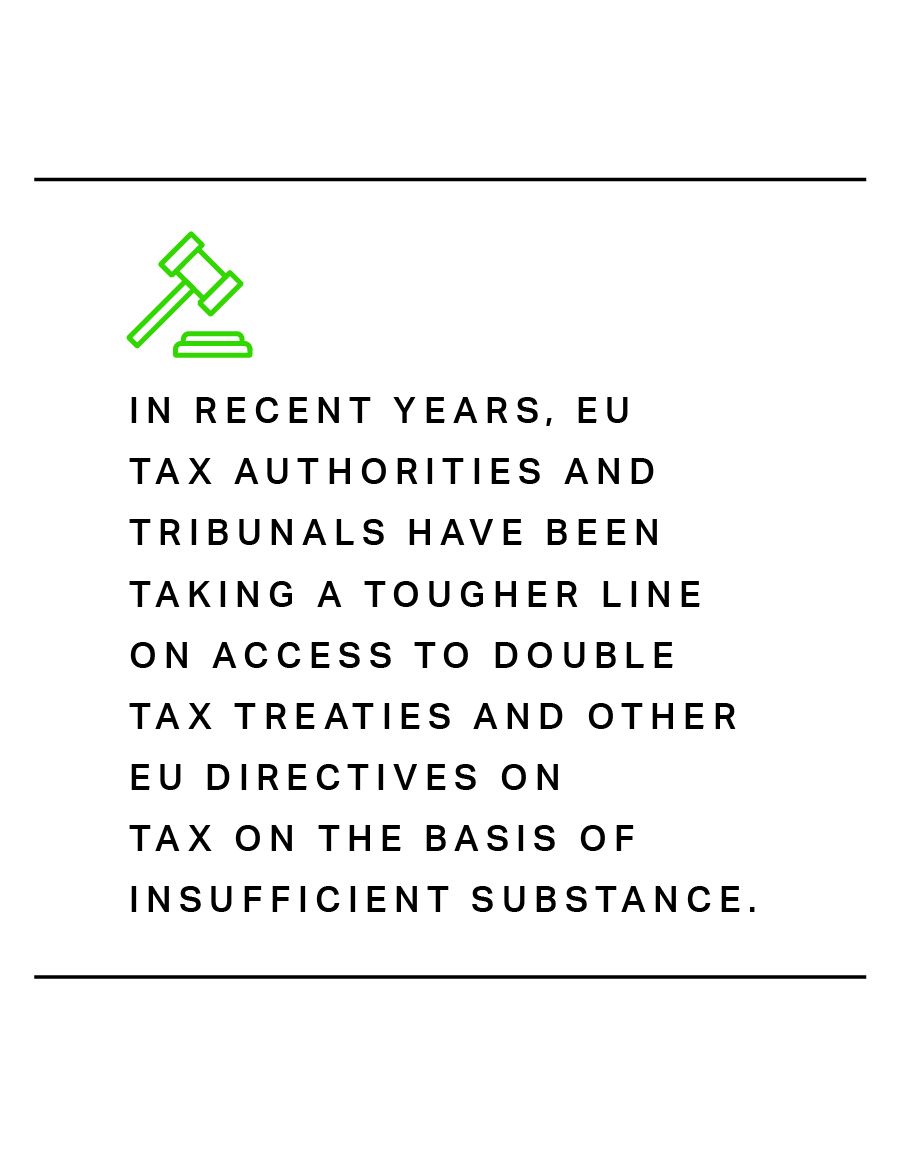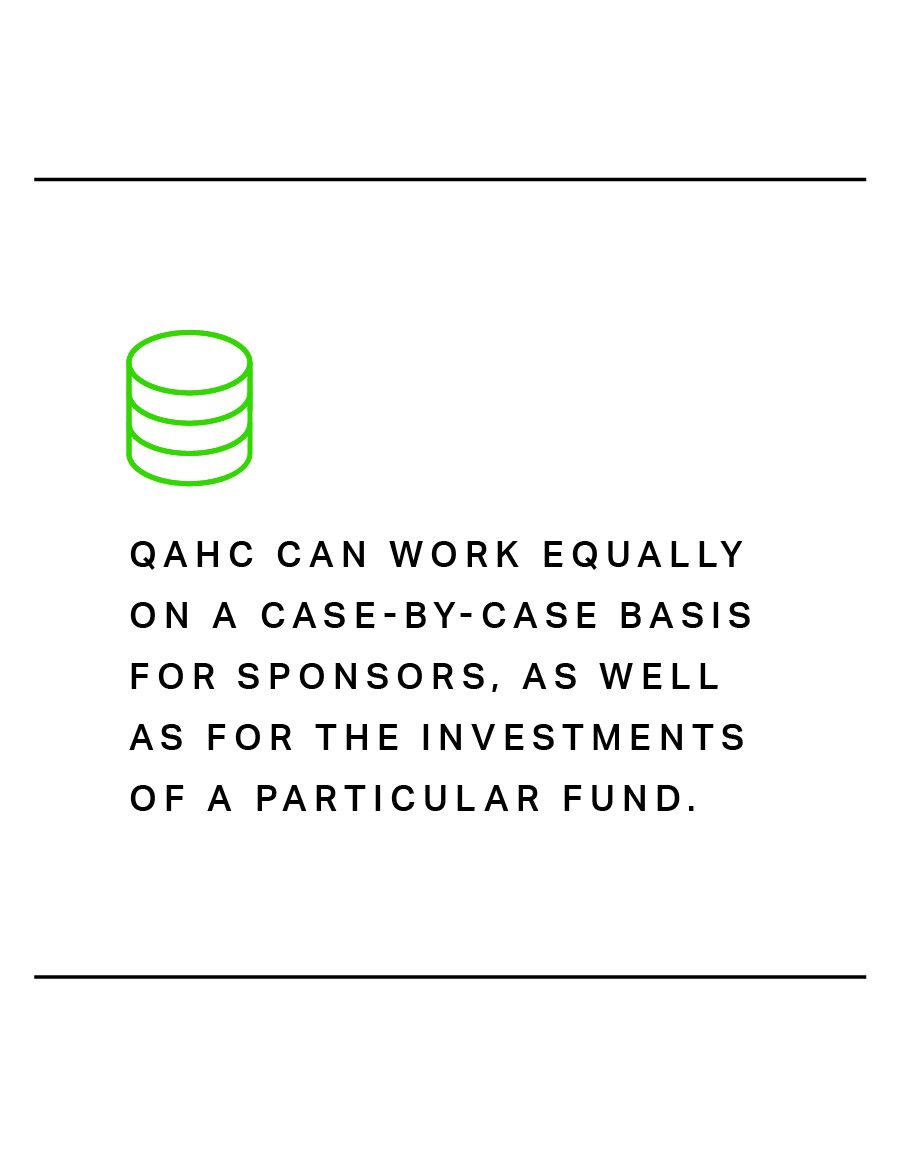New Tax Rules
Aim to Level Playing
Field for UK Holding Companies

New rules designed to make the UK a more attractive jurisdiction for holding companies came into effect from April 1, 2022. For private equity firms with a strong presence in the UK, the new Qualifying Asset Holding Company (QAHC) regime could result in a more favourable tax environment – in line with the likes of Luxembourg and Ireland – just as planned legislation threatens to set a higher bar for sponsors to access tax treaty benefits in the EU.
Improving Tax Benefits for UK Holding Companies
The QAHC regime is part of the growing package of measures aimed at making the UK competitive following Brexit. By levelling the tax playing field with other common jurisdictions for private equity and other alternative investment holding companies, the QAHC regime represents a concerted push to encourage sponsors to keep assets onshore. Highlights of the regime include:



Why Choose the UK for Holding Companies?
Sponsors with UK offices and operations may find it easier to prove substance in the UK than in competing offshore jurisdictions. In recent years, EU tax authorities and tribunals have been taking a tougher line on access to double tax treaties and EU tax directives on the basis of insufficient substance. The third iteration of ATAD (Anti-Tax Avoidance Directive), which is currently in the proposal phase and aims to crack down on shell companies, could further raise the bar on proving substance by focusing on requirements such as local administration, personnel and premises.

The large community of professional services providers may also give the UK an edge, as may some more flexible aspects of English corporate law. Although English law can be restrictive in terms of capital returns to shareholders, it is notably more flexible than, for example, Luxembourg law on governance matters. There is also flexibility that can permit a UK tax resident QAHC to incorporate in a non-UK jurisdiction like Jersey or the Cayman Islands.
Arguments Against UK QAHC
Qualifying conditions require QAHCs to be owned by institutional investors or widely held funds, applying various tests, some of which are complex. Restrictions or pitfalls under these tests could present a barrier for some private equity funds.
Certain types of sponsors may also find rules on QAHC qualifying activities unclear. The QAHC regime only applies to companies whose main activity is investment. This could create uncertainty for private equity sponsors operating in the credit market, whose activity involves loan origination or debt restructuring, pending clarification from HMRC on the meaning of investment in this context.
Another drawback is in administration and reporting for QAHCs as companies must take reasonable steps to monitor whether ownership conditions continue to be met, and must provide annual financial information to HMRC, including estimates of the value of in-scope assets.
Conclusion
The new regime presents benefits for sponsors whose asset holding companies fall clearly within it, and who do not have well-established holding company platforms in European jurisdictions like Luxembourg. QAHCs can work equally on an asset-by-asset basis for sponsors, as well as for the investments of a particular fund. However, wholesale adoption of the regime by private equity firms will require greater clarity on a number of issues. It may also benefit from progress in the ongoing wider review of UK funds regulation and taxation.


Conclusion
The new regime presents benefits for sponsors whose asset holding companies fall clearly within it, and who do not have well-established holding company platforms in European jurisdictions like Luxembourg. QAHCs can work equally on an asset-by-asset basis for sponsors, as well as for the investments of a particular fund. However, wholesale adoption of the regime by private equity firms will require greater clarity on a number of issues. It may also benefit from progress in the ongoing wider review of UK funds regulation and taxation.


United Kingdom
UK Core PE Group:
Extended Private Equity Practice:
Italy
Italian Core PE Group:
Extended Private Equity Practice:
France
French Core PE Group:
Extended Private Equity Practice:
Belgium
Belgian Core PE Group:
Extended Private Equity Practice:
Germany
German Core PE Group:
UAE






























